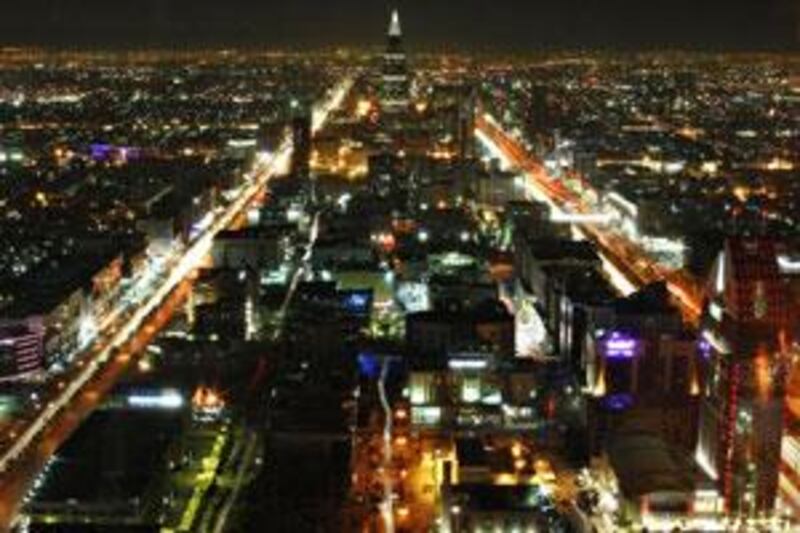Fuel shortages and other hurdles will put new electricity generation targets in Saudi Arabia out of reach, analysts say, as the kingdom prepares to use more of its valuable crude oil to keep domestic lights on and air conditioners running. Saudi Electricity Company (SEC), the state utility, said in its annual report on Wednesday that it wanted to add 12,043 megawatts of power capacity by 2015, equivalent to between four and eight power plants of the size commonly built in the Gulf.
The company plans to add 2,478mw this year alone, according to the report, which was published in Saudi newspapers. The country's current capacity is just under 40,000mw. The plan faces a number of constraints, including shortages of fuel and manpower, and a lengthy contracting process, said Douglas Caskie, an expert in Gulf power at the international consultancy IPA Energy and Water Economics. "That sounds very ambitious given the capacity developments so far," he said. "If you imagine 2,000mw as a really significant sized power plant, to replicate that, to run the procurement process for that in five years, four times over, is significant."
Saudi Arabia is in dire need of more electricity capacity. Power cuts are an annual occurrence at periods of peak demand in summer, and consumption is growing at one of the fastest rates in the world. "There has been double-digit, compound growth in demand," Mr Caskie said. "And that's a combination of a number of factors including low tariffs - plus this planned development, the industrial cities and all the rest of it."
A shortage of natural gas remains a significant constraint, with Saudi Aramco, the state oil company, being pulled in different directions to supply gas to industrial plants and its own operations, JP Morgan Chase, the investment bank, said in a report last month. "With gas growth uncertain over the next few years and a stated policy that petrochemicals get first priority for gas supplies, at least in over the next three years it appears that the kingdom's power generation will require an increasing amount of oil," wrote Lawrence Eagles, the author of the report.
The burning of oil to generate electricity emits more pollution, requires additional capital investment in power plant technology and reduces the country's exports. By 2012, Saudi Arabia could be burning 900,000 to 1.2 million barrels per day (bpd) of crude oil to generate electricity in summer months, JP Morgan said. The country burnt as much as 470,000 bpd of crude oil last summer, according to FACTS Global Energy, a consultancy.
Saudi Arabia has few alternatives. Solar energy is not considered a realistic option because of its high cost, while the government is not pursuing nuclear energy, as the UAE is doing. Natural gas, the default option that fuels slightly less than half of Saudi power capacity, remains in short supply. Despite its vast oil reserves, the country has few reservoirs of natural gas found separately from crude oil deposits, so gas supplies decrease with OPEC quotas and other limits to oil production.
Saudi Aramco had hoped to find significant new reserves in the Rub al Khali in the south, but has little to show for its efforts after almost six years of drilling with foreign partners. "They would need a significant find. I think they would need a game-changing find in the Empty Quarter if these things are going to be gas-fired," Mr Caskie said of the planned new power plants. "They'll burn fuel or crude oil."
@Email:cstanton@thenational.ae





